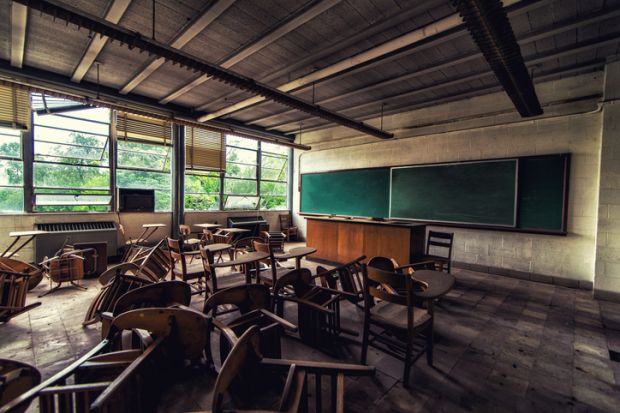The number of bachelor's degrees in the humanities awarded by US universities has declined by 5 per cent in the space of a year.
The number of degrees conferred in 2015 – 212,512 – was also down nearly 10 per cent from its high point in 2012.
The figures are from an analysis published by the American Academy of Arts & Sciences as part of the organisation's Humanities Indicators project.
The trend is likely to alarm humanities professors and many others in academia. Many humanities departments have found themselves struggling to maintain tenure-track faculty lines and, in some cases, to continue departments.
Humanities professors are quick to note that their departments play crucial roles in general education for students from a range of majors. But many universities have been allocating positions and deciding on departmental fates in large part based on numbers of majors.
There was also a decline in the share of all bachelor's degrees awarded in the humanities, falling below 12 per cent for the first time since data were available that compared degrees awarded by disciplines. The data come from the US Education Department's Integrated Postsecondary Education Data System.
Compared with 10 years ago, only engineering, health and medical sciences and the natural sciences have seen increases in the share of bachelor's degrees awarded.
In the humanities, there was a decline of 20 per cent in the proportion of degrees awarded, while business and management saw a decline of 13 per cent and the largest drop was in education at 27 per cent.
The humanities' share of all bachelor's degrees was the same at public and private institutions, according to another analysis released by the academy. This represents a shift over the past three decades: it used to be the case that a larger share of bachelor's degrees were awarded by private institutions – a group that includes many liberal arts colleges – than by public institutions.
Robert B. Townsend, director of the Washington office of the American Academy of Arts & Sciences, said that he began "hearing concerns from faculty eight or nine years ago about declining enrollments" and that he sees the new data as confirming these fears.
He said less is known on what is "shaping students' decisions”. He said that he understood the "widespread speculation about a cultural environment that pushes students toward majors with obvious professional outcomes”, but he noted that there have also been declines in some vocational fields, such as business and education.
Among majors within the humanities, the largest declines were among English and history – disciplines that are traditionally the most popular in the humanities. There was a combined drop in these subjects of 10 per cent in 2015 and a 16 per cent drop from 2012 to 2015.
Communication (a field some classify as a social science and not in the humanities, as the academy does) now has more majors than English or history.
Trevor Parry-Giles, director of academic and professional affairs at the National Communication Association, said that many in the discipline have long thought of it as "a hybrid" of the humanities and the social sciences, and that this may be a plus in attracting students.
"We live in a communication age," he said. "Our faculty and our scholars do a nice job of demonstrating the relevance of the major for prospective students."
This is an edited version of a story which first appeared on Inside Higher Ed.
Register to continue
Why register?
- Registration is free and only takes a moment
- Once registered, you can read 3 articles a month
- Sign up for our newsletter
Subscribe
Or subscribe for unlimited access to:
- Unlimited access to news, views, insights & reviews
- Digital editions
- Digital access to THE’s university and college rankings analysis
Already registered or a current subscriber? Login








